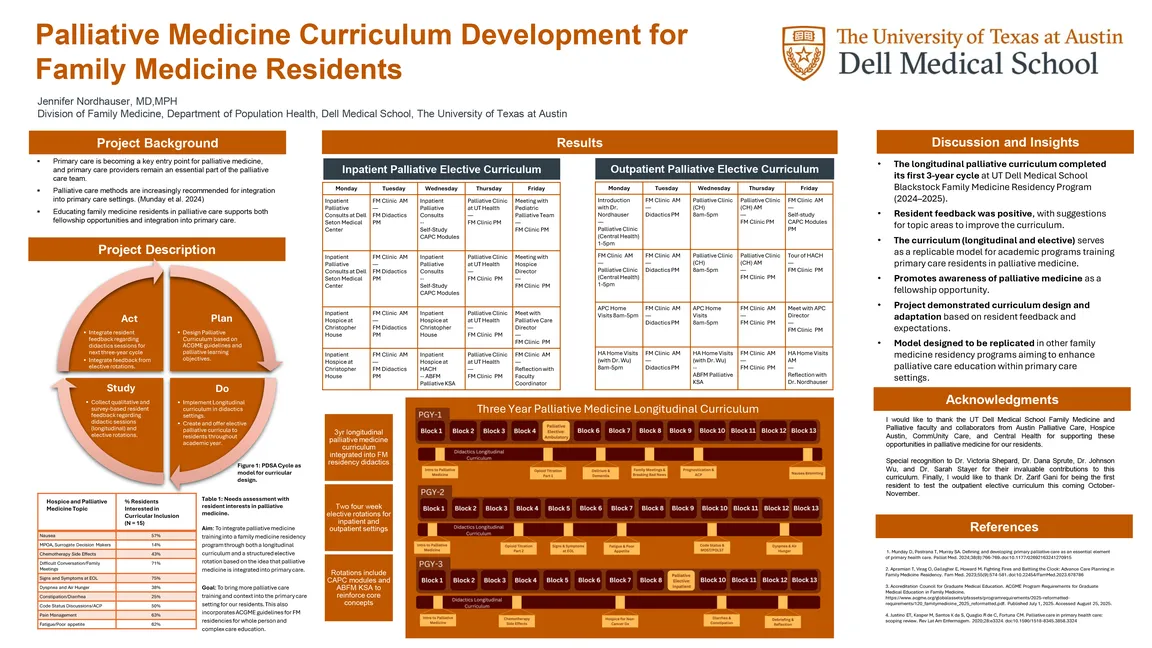Palliative Medicine Curriculum Development for Family Medicine Residents
This project aims to integrate palliative medicine training into a family medicine residency program through both a longitudinal curriculum and a structured elective rotation. Guided by resident and faculty feedback, we will continue to optimize the palliative medicine experience for family medicine residents to increase awareness of palliative medicine and identify it as a fellowship possibility.
To develop the curriculum, I employed resources from the Center to Advance Palliative Care (CAPC), my institution's existing fellowship and resident rotation structures, prior family medicine palliative curricula, and family medicine research journal articles that have highlighted the integration of palliative medicine into primary care. I also surveyed family medicine residents for insights on their expectations for palliative training and self-identified knowledge gaps.
This project resulted in a three-year longitudinal palliative medicine curriculum cycle integrated into the family medicine residency didactics schedule as well as two versions of a four-week elective rotation block. One version focuses on inpatient palliative medicine and hospice, while the other version is focused on outpatient care. Both versions incorporate a series of online CAPC training modules and American Board of Family Medicine Knowledge Self-Assessments to build a baseline foundation of palliative and hospice knowledge in the primary care setting.
This curriculum (both longitudinal and elective) provides a roadmap for academic palliative programs to replicate with medical residents in primary care specialties and promote palliative medicine fellowship training. This project was also a lesson in curricular design and modification based on resident feedback and expectations. The replicability of this model can help academic programs looking to strengthen understanding of palliative care within primary care settings.
Author
Jennifer Nordhauser, MD,MPH (UT Dell Medical School Department of Population Health)
